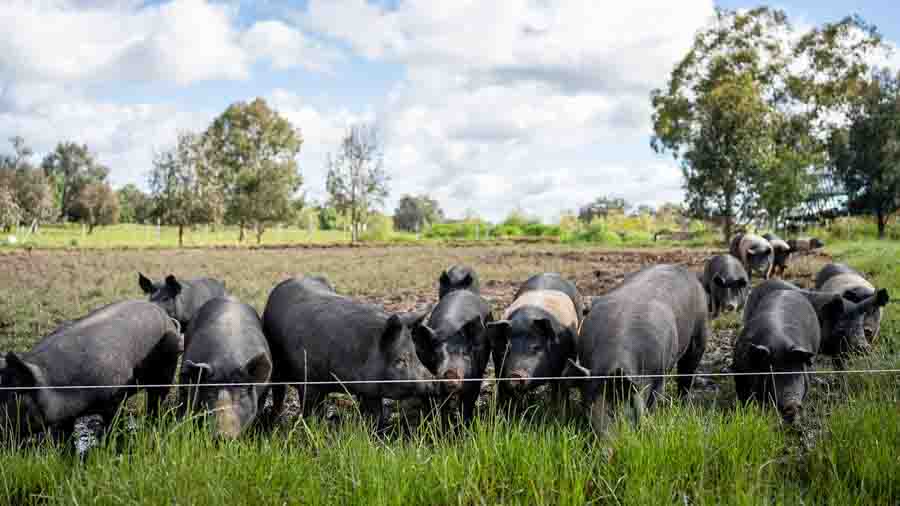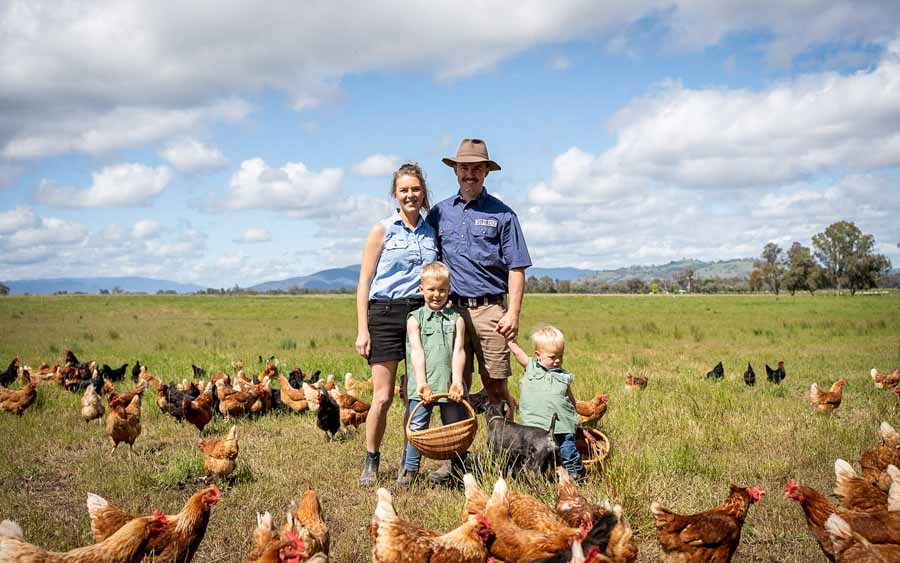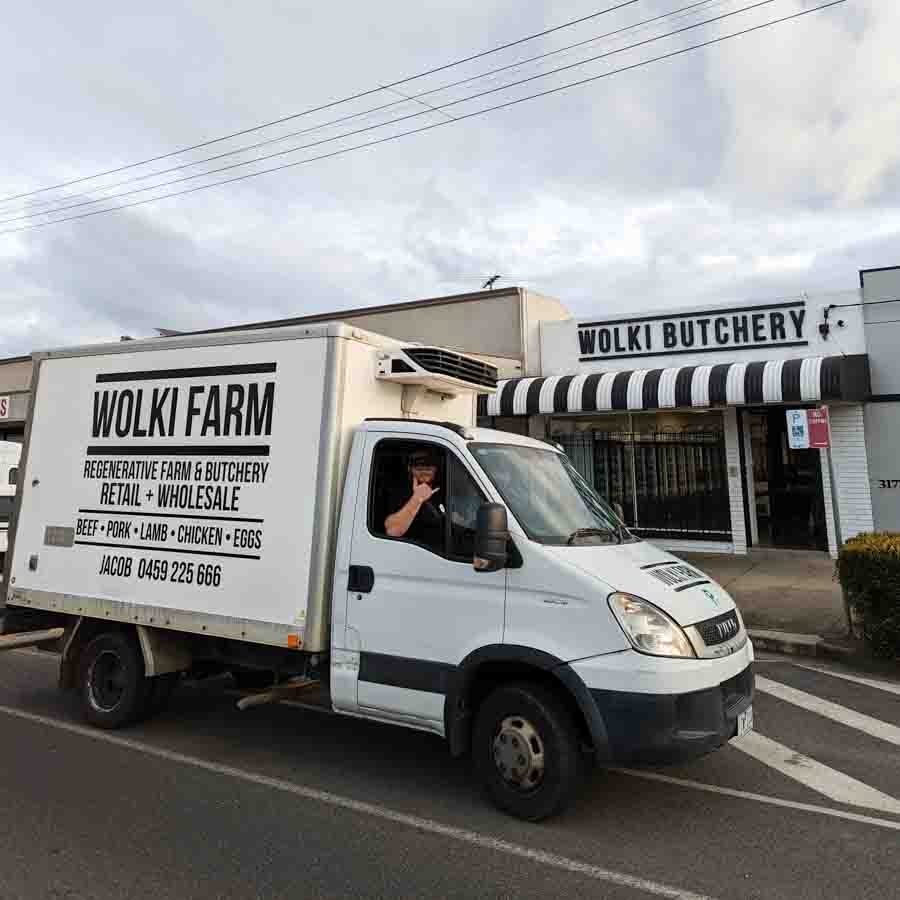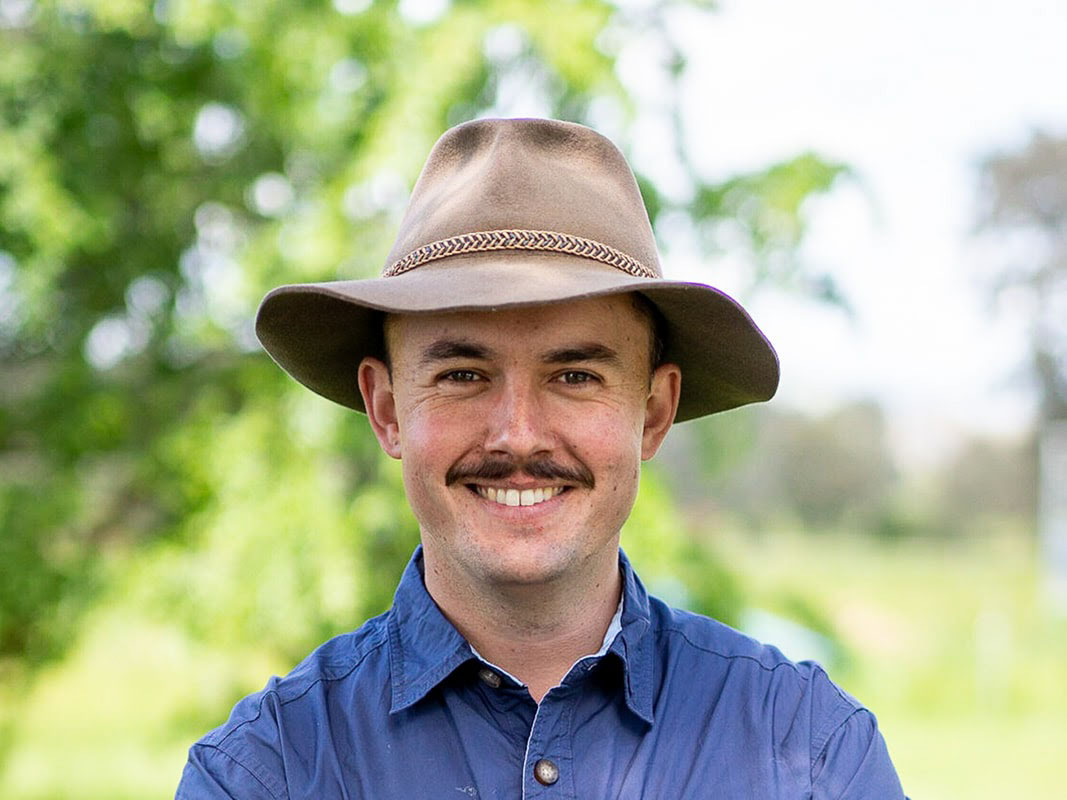 Wolki Farm runs 120 head of cattle, 1300 layers, 1500 broilers, 80 pigs, 100 sheep and 25 bee hives. They also have a market garden.
Wolki Farm runs 120 head of cattle, 1300 layers, 1500 broilers, 80 pigs, 100 sheep and 25 bee hives. They also have a market garden.
Since 2019 Wolki Farm has grown from just an idea to a way of life for Jake and his family. 'I realised if I was going to be doing daily moves for one cow for personal consumption then I might as well do 20,' Jake says.
It all started with 20 Hereford heifers, and 13 hens - that were nabbed from his Dad's place - running behind them in a simple caravan. Just four years later Wolki Farm runs 120 head of cattle, fondly referred to as the 'motley crew' to represent their Hereford, Shorthorn, Jersey or Nguni breeding, 1300 layers, 1500 broilers at any time, 80 pigs, 100 sheep and 25 bee hives. They also have a market garden.
Jake says there was no master plan, rather the business grew in response to customer requests. 'I didn't want to farm sheep. I was completely against it, but I got asked daily for lamb and so that's what we did,' he says. He also says that running a good business doesn't have to be complicated. 'I run simple budgets and monitor the cash flow,' he says. 'I'm not very sophisticated with it. I often use the back of an envelope to see if the numbers add up.'
I run simple budgets and monitor the cash flow. I'm not very sophisticated with it. I often use the back of an envelope to see if the numbers add up.
The farm now leases 40 hectares of land from Jake's parents, a further 40 hectares nearby, and also 40 hectares at Kancoona, 70 kilometres from Albury, where they also harvest wild venison. Jake's wife Ann and young children Otto and Theo are all hands on in the business - at the farm, butchery and in Cafe Musette, which is also run by the couple and exclusively stocks Wolki Farm protein.




